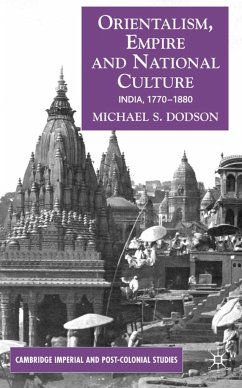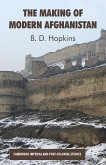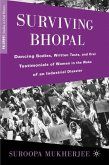Orientalist research has most often been characterised as an integral element of the European will-to-power over the Asian world. This study seeks to nuance this view, and asserts that British Orientalism in India was also an inherently complex and unstable enterprise, predicated upon the cultural authority of the Sanskrit pandits.
Longlisted for the ICAS Book Prize (IBP) 2009 for the Humanities and Social Sciences
'This is a book about orientalism in India,' Dodson tells us. But it is also much more. In exploring the evolution of Sanskrit intellectual culture at Benares College, Dodson reveals a complex, layered world of knowledge production in an increasingly important outpost of the British Empire. The 'common ground' of Benares College possessed, to be sure, an uneven political topography, but it was a topography full of surprising landmarks - especially for those who assume an easy congruence between trajectories of power and knowledge in Europe's engagement with its Others. Dodson's nuanced historical mapping of this topography is as eloquent as it is penetrating. It raises profound questions not only about the nature of the British 'colonizing project' in India, but the degree to which it was a 'colonizing' project in the final analysis. Dodson's careful, stimulating scholarship deservesa wide readership.' - Professor William Pinch, Wesleyan University
'Michael Dodson aims to complicate some persistent historical truths about the ideological work of orientalism by undertaking a local study of one of its institutionalized forms, Benares Sanskrit College. Through painstaking textual analysis and equally meticulous attention to the relationship between indigenous cultural authority and the exigencies of colonial rule, he argues that Hindu pundits were not merely annexed to constructive orientalism, but that they also used it to remake their own claims to relevancy in the ever-imperializing world of the Raj. In so doing he opens up new avenues of inquiry about the fate of intellectual expertise and adaptability in the context of modern imperialism.' - Professor Antoinette Burton, the University of Illinois
'It will be of great interest to historians of modern South Asia, but also more broadly to those engaged with the roles of informants in the production of colonial knowldge, and with the history of modern educational policies and institutions in the colonial context.' - The Journal of Asian Studies
'This is a book about orientalism in India,' Dodson tells us. But it is also much more. In exploring the evolution of Sanskrit intellectual culture at Benares College, Dodson reveals a complex, layered world of knowledge production in an increasingly important outpost of the British Empire. The 'common ground' of Benares College possessed, to be sure, an uneven political topography, but it was a topography full of surprising landmarks - especially for those who assume an easy congruence between trajectories of power and knowledge in Europe's engagement with its Others. Dodson's nuanced historical mapping of this topography is as eloquent as it is penetrating. It raises profound questions not only about the nature of the British 'colonizing project' in India, but the degree to which it was a 'colonizing' project in the final analysis. Dodson's careful, stimulating scholarship deservesa wide readership.' - Professor William Pinch, Wesleyan University
'Michael Dodson aims to complicate some persistent historical truths about the ideological work of orientalism by undertaking a local study of one of its institutionalized forms, Benares Sanskrit College. Through painstaking textual analysis and equally meticulous attention to the relationship between indigenous cultural authority and the exigencies of colonial rule, he argues that Hindu pundits were not merely annexed to constructive orientalism, but that they also used it to remake their own claims to relevancy in the ever-imperializing world of the Raj. In so doing he opens up new avenues of inquiry about the fate of intellectual expertise and adaptability in the context of modern imperialism.' - Professor Antoinette Burton, the University of Illinois
'It will be of great interest to historians of modern South Asia, but also more broadly to those engaged with the roles of informants in the production of colonial knowldge, and with the history of modern educational policies and institutions in the colonial context.' - The Journal of Asian Studies








